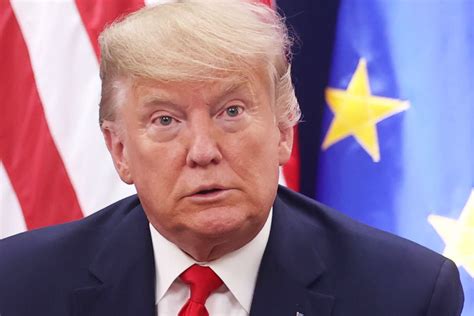“Donald Trump is America first. And if there is any example of a foreign regulation that puts America last, it’s the EU’s [climate agenda],”
In the realm of environmental policies and business interests, a transatlantic tussle is brewing as President-elect Donald Trump’s allies gear up to combat Europe’s stringent green reporting rules. With Republicans seizing control of the White House and Congress, their resolve to push back against initiatives holding corporate America accountable for its ecological footprint has only strengthened.
The European Union (EU) has been at the forefront of implementing rigorous climate regulations, much to the chagrin of American lawmakers and executives who perceive these laws as detrimental to competitiveness and financially burdensome. The recent political landscape in Washington has emboldened critics who argue that EU regulations impose unreasonable costs on U.S. companies operating in Europe.
Rep. Andy Barr (R-Ky.), after engaging with European officials on Brussels’ regulatory framework, emphasized the concept of putting “America first” amidst clashes over differing environmental standards across borders. According to Barr, an assertive stance prioritizing American interests will fuel opposition against what some view as overreaching regulations emanating from Europe.
“There’s a window of opportunity here to get to rational policy developments in Brussels,”
One key area of contention revolves around guidelines such as the Corporate Sustainability Reporting Directive (CSRD), which mandates companies to disclose their environmental impact and climate-related risks. Additionally, the EU’s due diligence law requires businesses to address environmental and social concerns within their supply chains—a move that has sparked apprehension among U.S.-based firms given its broad implications.
Amidst this regulatory landscape, shifts towards more conservative ideologies within European governments have fueled skepticism regarding the efficacy of stringent environmental measures on businesses’ operations. In response to these concerns and an eye towards economic recovery post-COVID-19, the European Commission announced plans to review existing laws with potential simplifications or even rollbacks under consideration.
While American entities like JPMorgan, Bank of America, and BlackRock have sought adjustments in EU sustainable finance policies through lobbying efforts, there are contrasting views on whether relaxing regulations would truly benefit transatlantic business relations in the long run.
“Reopening these legal texts questions institutional stability…and risks hampering the competitiveness…”
Despite external pressures aimed at influencing EU policy shifts from U.S.-based organizations like the Chamber of Commerce, internal dynamics within Europe dictate a cautious approach towards altering established legislation concerning sustainability practices. The balancing act between promoting global competitiveness while upholding stringent ecological standards remains a central point of debate for policymakers both in Washington D.C. and Brussels.
As voices advocating for greater flexibility in eco-regulations gain momentum amid changing political landscapes on both sides of the Atlantic, finding common ground between economic imperatives and sustainability goals emerges as a critical challenge requiring nuanced solutions benefiting all stakeholders involved.




Leave feedback about this